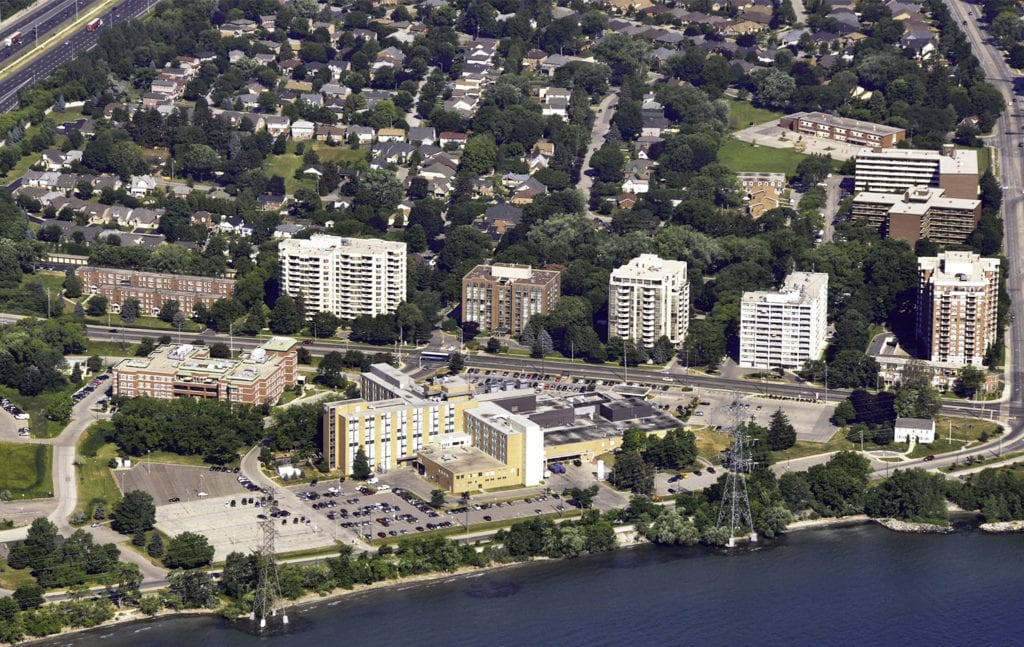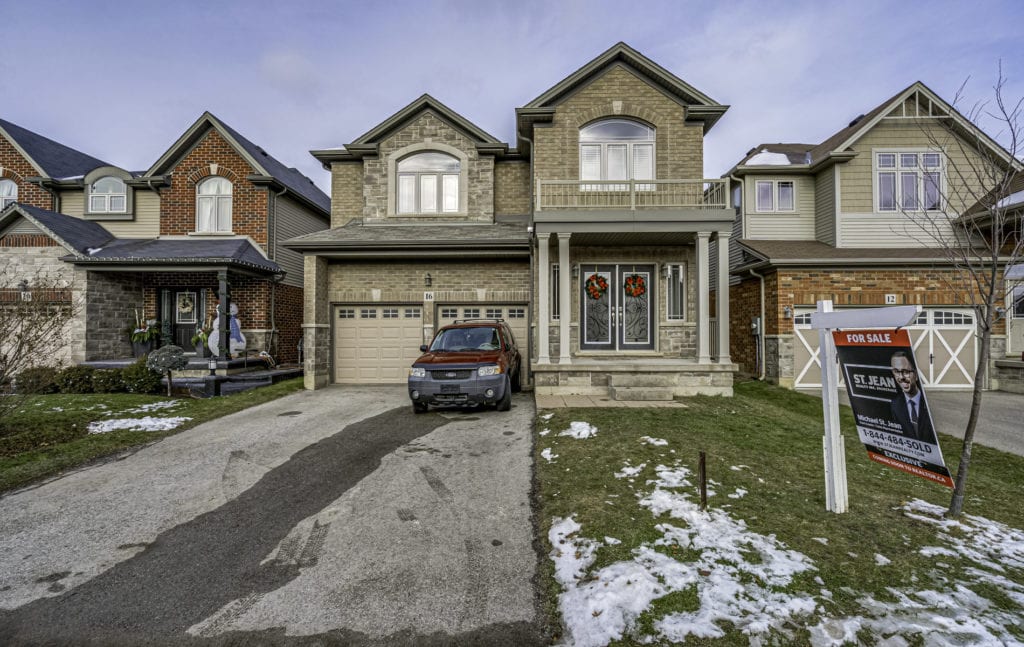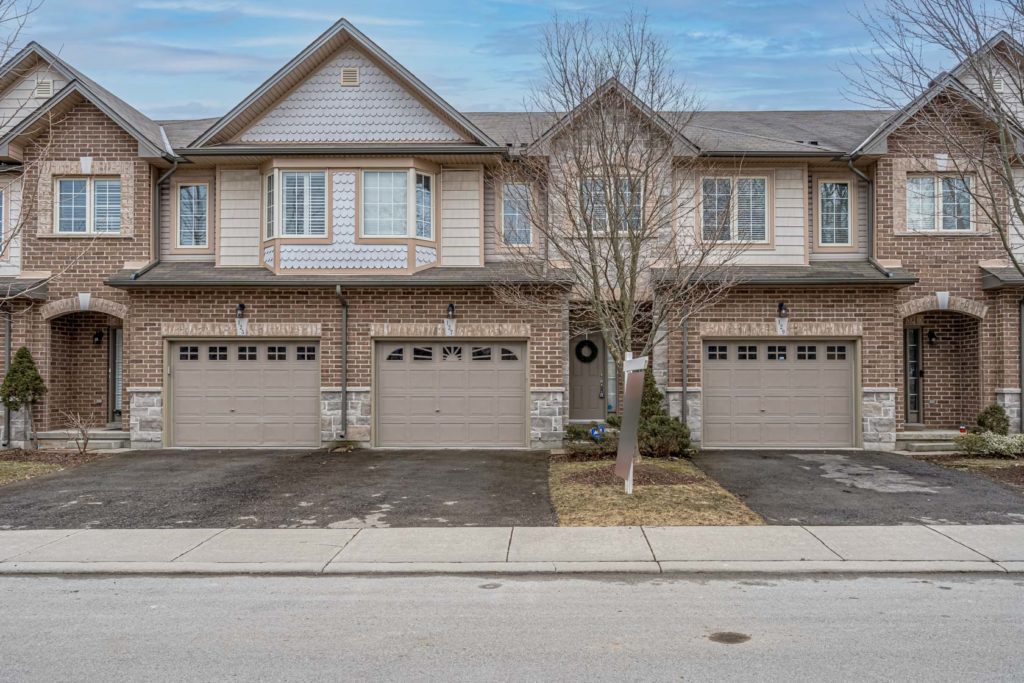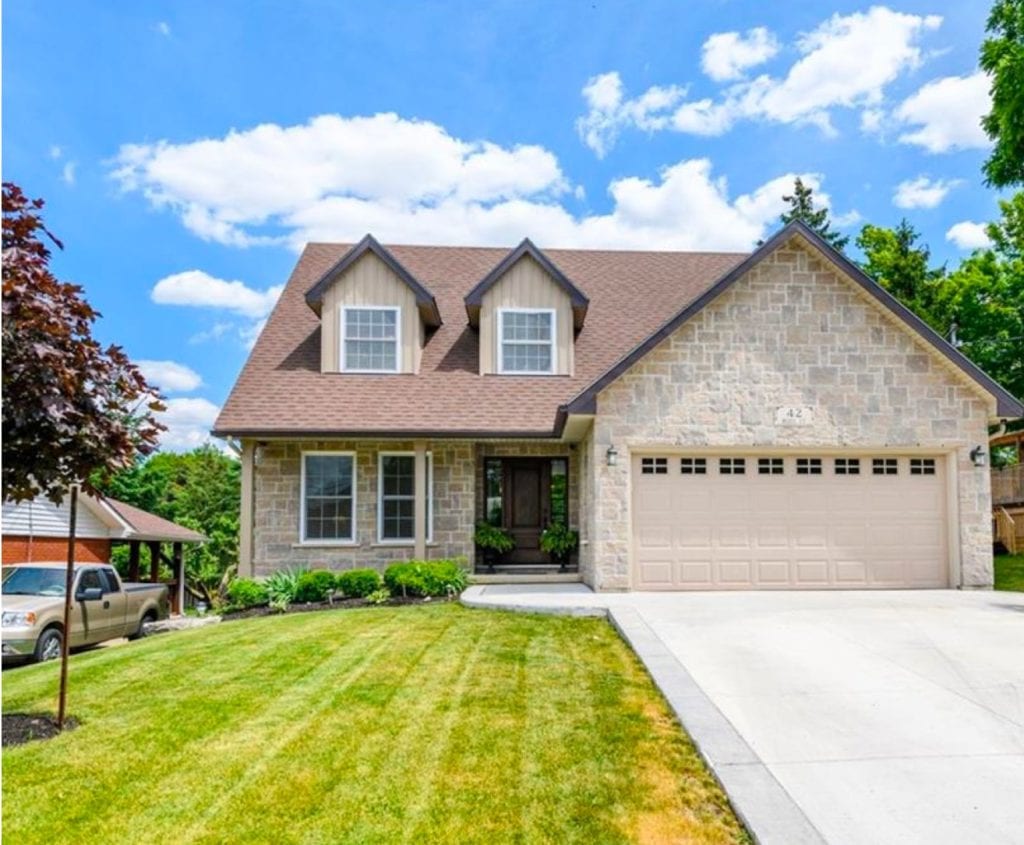
The Burlington real estate market started 2019 on a relatively weak point, with low sales and slowly-climbing prices. But much like we saw in Hamilton, the market started to accelerate as the year went on, gaining steam until finally ending the year on a positive note.
In 2019, Burlington real estate listings fell by 5.7% and sales increased by 5.7%. The average sale price rose by 2.8% to $755,639, the third-highest average residential sale price for the local board. Burlington listings spent the fewest days on the market, at an average of 26.6 days.
Here’s a closer look at the area’s sales and sold prices:
Keep in mind the following statistics don’t reflect our current market very well and are averaged over the year. There was a dramatic difference between the first and second halves of 2019; if we isolated the second half, we would see a very different picture, with increased price growth and lower sales inventory.
| Number of Sales | Average Sale Price | |||
|---|---|---|---|---|
| 2019 | 2018 | 2019 | 2018 | |
| Hamilton West | 670 | 609 | $503,725 | $486,404 |
| Hamilton East | 1,000 | 878 | $503,725 | $371,074 |
| Hamilton Centre | 1,575 | 1,042 | $391,084 | $354,019 |
| Hamilton Moutain | 2,043 | 1,838 | $501,289 | $472,414 |
| Flamborough | 237 | 203 | $769,804 | $757,081 |
| Dundas | 353 | 327 | $643,857 | $609,739 |
| Ancaster | 651 | 558 | $772,811 | $739,722 |
| Waterdown | 432 | 402 | $702,322 | $659,258 |
| Stoney Creek | 1,266 | 1,080 | $565,642 | $534,792 |
| Glanbrook | 549 | 440 | $590,087 | $559,673 |
| Burlington | 3,086 | 2,919 | $755,639 | $735,090 |
| Dunnville | 219 | 199 | $416,997 | $401,705 |
| Cayuga | 71 | 77 | $492,451 | $480,314 |
| Caledonia | 212 | 178 | $501,440 | $455,486 |
| Hagersville | 68 | 78 | $384,495 | $382,932 |
| Oneida | 12 | 10 | $581,833 | $520,497 |
| Seneca | 25 | 35 | $665,992 | $664,072 |
| Rainham | 57 | 85 | $466,153 | $356,312 |
| Grimsby | 573 | 502 | $584,942 | $553,163 |
| Smithville | 107 | 105 | $520,744 | $488,529 |
| West Lincoln | 34 | 37 | $719,592 | $610,927 |
How Did The New Mortgage Rules Impact The Market?
When the new mortgage rules were unveiled, we saw people gravitate towards more affordable real estate with a downward pressure put on the market. Since Burlington’s homes have a higher-than-average price point compared to the rest of the area, the city didn’t fare as well as other communities that have a more affordable housing supply.
The Inventory Influence
After the release of the Fair Housing Plan and new mortgage rules, there was a dramatic increase in listing inventory, which was mostly fuelled by sellers who feared the impact of these new measures. We went from having a very low housing inventory in 2017 to suddenly having a very high inventory, especially in the higher price brackets and suburbs. Fewer buyers were looking to buy, though, as some thought the market would change in their favour (which it didn’t).
Then, in early summer, the impact of the mortgage rules started to wear off. Those buyers sitting on the sidelines jumped back into the market at great numbers and inventory began decreasing again. As the year progressed, new sales increased, new listings decreased, and active listings decreased as inventory shrank. Homes also spent fewer days on the market. We ended the year teetering on double-digit price growth and inventory levels that created 2017-like market conditions, not just in the $300K – $500K range, but in the higher price brackets and suburbs as well.
The Introduction of the First-Time Home Buyer Incentive
The Federal government launched the First-Time Home Buyer Incentive in 2019, providing buyers who have an annual income of up to $120,000 with 5 – 10% of a home’s purchase price for homes up to $560,000. With these restrictions, the Incentive didn’t quite help buyers looking in hot markets like Toronto and Vancouver, where the average price of a home is well above the $560,000 maximum. Overall, the Incentive didn’t have the impact many thought it would; we’ve noticed that many buyers aren’t discussing or taking advantage of it. We broke down the details of the Incentive in one of our previous posts here.
Interest Rates Held Steady
Since 2017, there have been five benchmark interest rate hikes, and many experts were predicting further raises in 2019. But instead, interest rates held steady at 1.75% throughout the year. The Bank of Canada was one of the only central banks that avoided an interest rate cut in 2019; experts say a resilient Canadian economy led to the hold, even as global economic concerns rose.
What’s Next for Burlington?
The biggest real estate news to come out of Burlington in 2019 was the controversial development freeze implemented by Mayor Marianna Meed Ward. The bylaw has put several developments in downtown Burlington on pause for at least 12 months. Burlington is a highly-desirable community ripe for growth, so this freeze has stalled many developers’ and buyers’ plans.
But it’s not all bad news – it’s looking like 2020 will be another excellent year for Burlington sellers. The city is seeing a rebound in the market, with values rising, listings spending fewer days on the market, and more buyers coming to the city. If you’re looking to buy or sell in Burlington, call us at 1-844-484-SOLD or send us an email at info@stjeanrealty.com to see how we can help.
Want to stay up-to-date on the market throughout the year? Get the St. Jean Report sent directly to your inbox once a week by subscribing in the form below.



